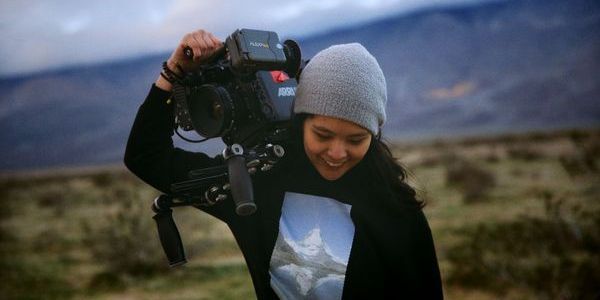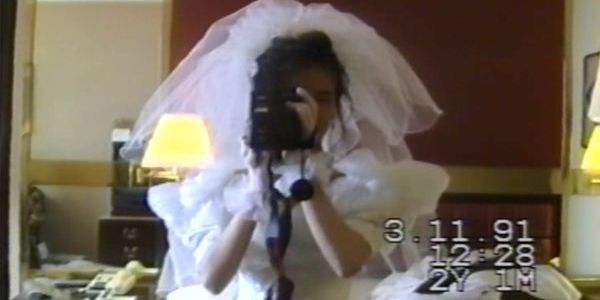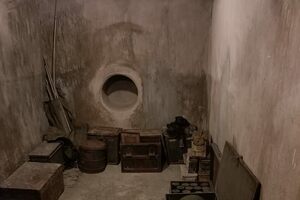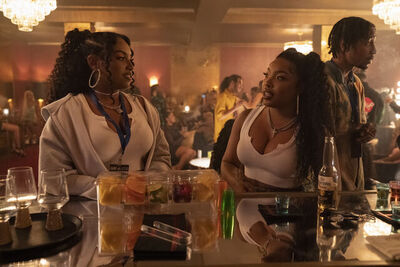Sundance 2021: Interview With Director Natalie Chao Of TO KNOW HER
Filmmakers often create projects that are deeply personal, and with her documentary short, To Know Her, Natalie Chao does just that. Piecing together old camcorder footage of her late mother with newer footage shot on the same device, Chao creates a unique time continuum to capture an intimate part of her family’s story. Conceived as a way of becoming closer to her own mother, the film is a striking examination of how powerful the cinematic medium can truly be. To Know Her is certainly a refreshing take from an exciting new filmmaker. Chao spoke with Film Inquiry about her short film during its premiere at the 2021 Sundance Film Festival.
Wilson Kwong for Film Inquiry: How does it feel to have your film premiere at Sundance?
Natalie Chao: When people are asked this question, I’m sure a lot of them are maybe overwhelmed, and it depends on what expectations they had. For me, getting it seen by anyone other than my friends or family would have already been a huge thing. So to have it premiere at Sundance was a very huge shock. And in a way, I didn’t think too much about it in the sense that it’s such a big deal, because to put anything more onto that would be a bit overwhelming. I just have to hope that the work can speak for itself and that it resonates. And for me, it’s about the reaction from people I know versus strangers. For people who know me, I get to show parts of myself that I’ve never really shown. And then for people who don’t know me, it’s almost a weird shot in the dark to see if it resonates. And if it does, it’s really nice. I’m glad something like Sundance exists where these things can happen.

Since all the ‘new’ footage from the film was shot more than 2 years ago, when did you actually decide that you were going to make this into a film? Was that always the plan?
Natalie Chao: I can’t really remember the precise moment. But in 2016, I made this short clip Searching for Her, which was a 4-minute piece after my dad first digitized his tapes. He gave it all to me out of nowhere, and it overwhelmed me. I watched so many hours of footage, and in reaction to that, made this 4-four minute short. That was just a poem I wrote that I translated into a film piece. And because of that film, I think it triggered a lot of questions for me. So since that time, I had always been playing with this footage, nonstop, but I would take lots of breaks in between. And when I had something that I wanted to experiment with, I would go for it. But in 2019, my dad and sister just came over to LA, and my sister suddenly said, “I found the camcorder.” I thought we should just shoot with it, treat it like a road trip camera. And that’s exactly what we did. After they digitized it, I realized that was the first time I had footage from today and footage from ages ago that I could edit. There needed to be an attempt of trying to see what happens with the timeline here, because I think a lot of my questions are always about bridging time and space. And it’s always a very dangerous thing because, on the one hand, film is a medium where you can manipulate time, but you also know that it’s not really possible. So it’s a constant rabbit hole, I think, playing with this kind of idea.
Reading through the press notes on this film, I know that that filmmaking process was a way of getting to know your mom a little bit better. Do you think it did the same thing for your dad and sister as well?
Natalie Chao: Absolutely. I think, unintentionally maybe, I definitely had things in mind because it’s not that we don’t talk about these things, but never this explicitly. And I know certain things exist in our three-way relationship where maybe my sister reveals certain things to me and not my dad, but now I felt like I could orchestrate a scenario where I have her ask him things that he doesn’t tell her, and vice versa. And that was really special because I think we were all surprised about what we all said in this exchange. Even when we watched it back now, we still laugh at the responses sometimes.

And did you find it difficult to make a film that tapped into these types of emotions?
Natalie Chao: I think one of the things I’m noticing is a lot of the people who don’t know me personally, have reached out and said, “I’ve lost someone recently, or I lost someone a long time ago, and this really hit me.” But then there are also people who have not said that, or maybe they haven’t revealed it. I think something I was very cautious about while making this film was to not hurt or trigger anybody with it because I know I’m putting a lot of myself (and my family) out there. But at the same time, as much as it’s about us, other people might empathize and relate to it too. So my mind was split between being worried about our own emotions, but also about how other people might feel watching this film. I don’t know if you’ve seen Christopher Yogi’s I Was a Simple Man at Sundance this year, but we were talking and I asked him about how he feels about the reaction to his film. And I think we both felt that you didn’t want to define loss because you can’t, and that’s why it’s so painful and everyone wants to hold onto stories about it. But at the same time, you really can’t define it. The moment you do, it becomes contrived and sentimental and just wrong. So I still feel very awkward about making films about her. Because on one hand, I’m trying to create dialogue and understand her, but in doing so, sometimes risk objectifying the person or abstracting them even more.
I’m assuming that making something non-fiction, as opposed to fictional, also makes it harder?
Natalie Chao: Exactly. That’s why comparing Christopher’s film is interesting because his film is technically fiction, but for some reason, while watching it the whole time, you feel such a weight and you know this person has suffered loss.
Let’s end off by talking about what’s next for you. Do you already have another project planned?
Natalie Chao: Well, I’m making a feature documentary right now. I don’t want to go into detail just yet, but it’s something that is a lot more socially conscious!
Film Inquiry would like to thank Natalie Chao for taking the time to speak with us!
Does content like this matter to you?
Become a Member and support film journalism. Unlock access to all of Film Inquiry`s great articles. Join a community of like-minded readers who are passionate about cinema – get access to our private members Network, give back to independent filmmakers, and more.
Join now!





